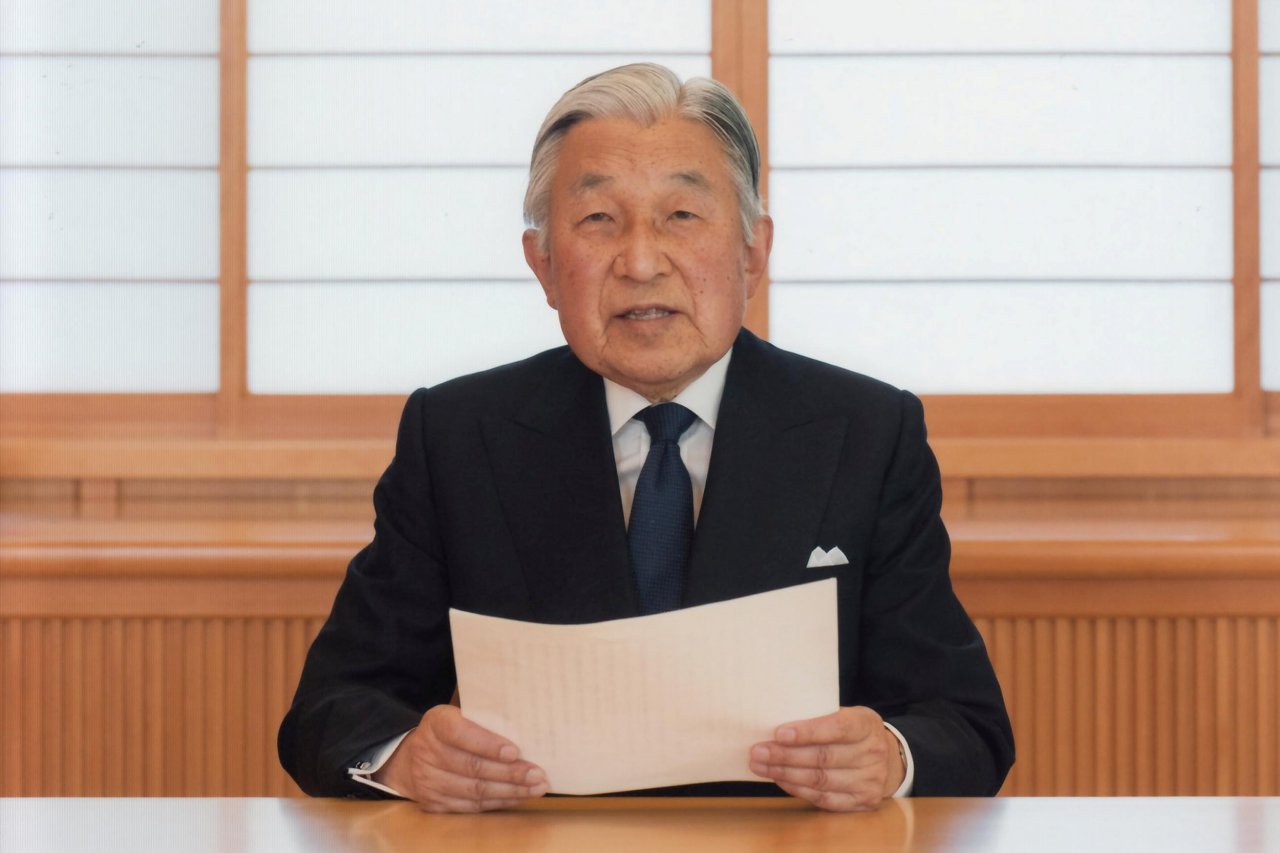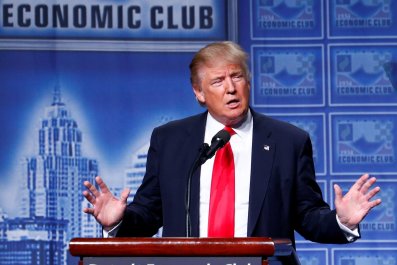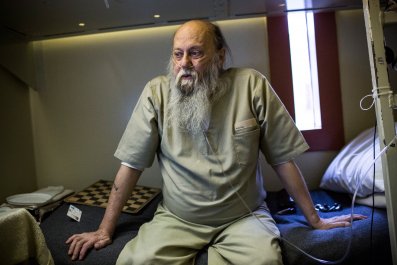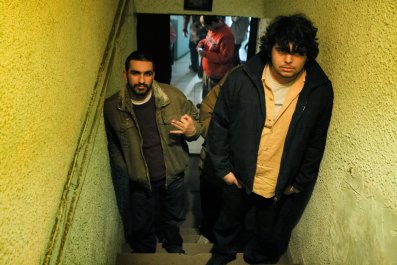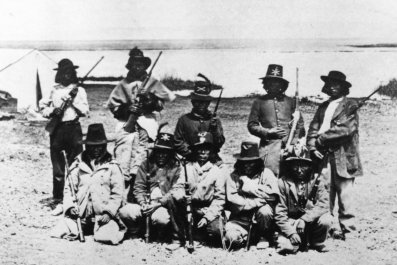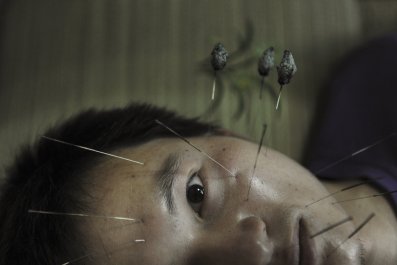At age 82, and in declining health, the emperor of Japan, Akihito, indicated in a televised address on August 9 that he is contemplating abdication from the world's oldest hereditary monarchy. In itself, that would seem unremarkable news, particularly outside Japan. In the postwar era, the Chrysanthemum Throne has been drained of almost all of its political potency, thanks largely to a constitution written by the occupying Americans after World War II. Thus did Akihito's father, Emperor Hirohito, become transformed before the world's eyes from a symbol of Japanese militarism—and, to the Japanese, a living god—to a quiet, meek old man with an interest in marine biology. (Indeed, so total was the image reversal that then U.S. President George H.W. Bush—a fighter pilot shot down by the Japanese during the war—would attend the emperor's funeral ceremony in 1989, bowing politely before the bier.)
Akihito has largely maintained that apolitical image, and he is viewed with respect by a majority of the Japanese population. For that reason, in a society that is also aging, his desire to step down at some point will probably be viewed as reasonable, even though Japanese law at this point doesn't deal with the prospect of imperial abdication. Prime Minister Shinzo Abe, in a statement after Akihito's broadcast, said "considering his majesty's age, the burden of his official duties and his anxieties, we must think carefully about what can be done."
The timing of Akihito's apparent desire to pass his job onto his son, 56-year-old Naruhito, is delicate for Japan. Abe, the prime minister, is popular, conservative and in favor of reforms to Tokyo's "pacifist" constitution that would allow a more robust role for Japan's military. Abe now has a parliamentary supermajority in support of constitutional change, and he may well seek a national referendum.
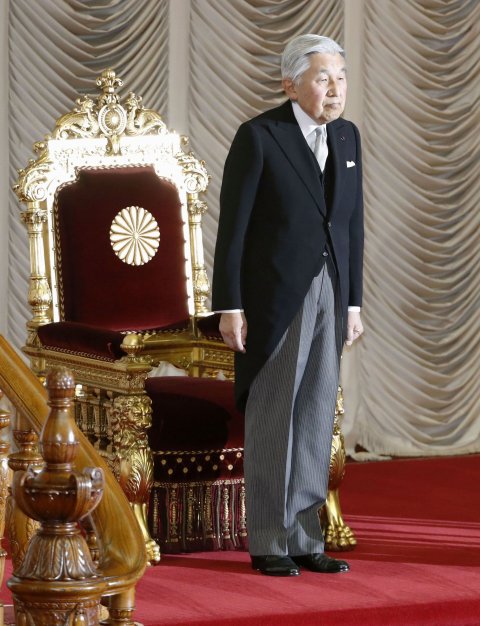
Japan's left is deeply suspicious of Abe's desire for constitutional change. Many see him as a dangerous nationalist eager to build up Japan's military, particularly in response to China. In his three decades as emperor, Akihito has made it fairly plain that he supports Japan's so-called peace constitution, and over the years, he has expressed more directly than his father and several Japanese prime ministers regret over Japan's role in World War II.
Last August, marking the 70th anniversary of the war's end, the emperor said, "Looking back at the past, together with deep remorse over the war, I pray that this tragedy of war will not be repeated and together with the people express my deep condolences for those who fell in battle and in the ravages of war." Interpreters of the imperial utterances in Japan believe that Akihito thus opposes changes to the constitution that Abe and the conservatives now seek.
So too, it is thought, does his son and heir apparent. A year ago, the crown prince said that though he didn't "experience the war, I think that it is important today, when memories of the war are fading, to look back humbly on the past and correctly pass on the tragic experiences and history Japan pursued from the generation which experienced the war to those without direct knowledge." Again, imperial-watchers took that as a shot at those pushing for constitutional change.
It's not likely Abe will back off; so the stage may be set for a historic debate—one that would have enormous regional implications—with the political establishment on one side and the ostensibly apolitical Chrysanthemum Throne on the other.



